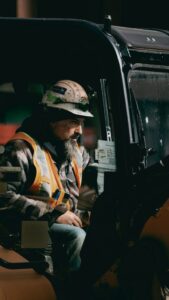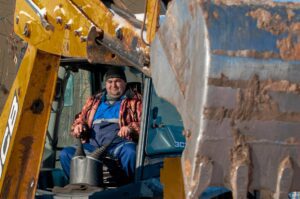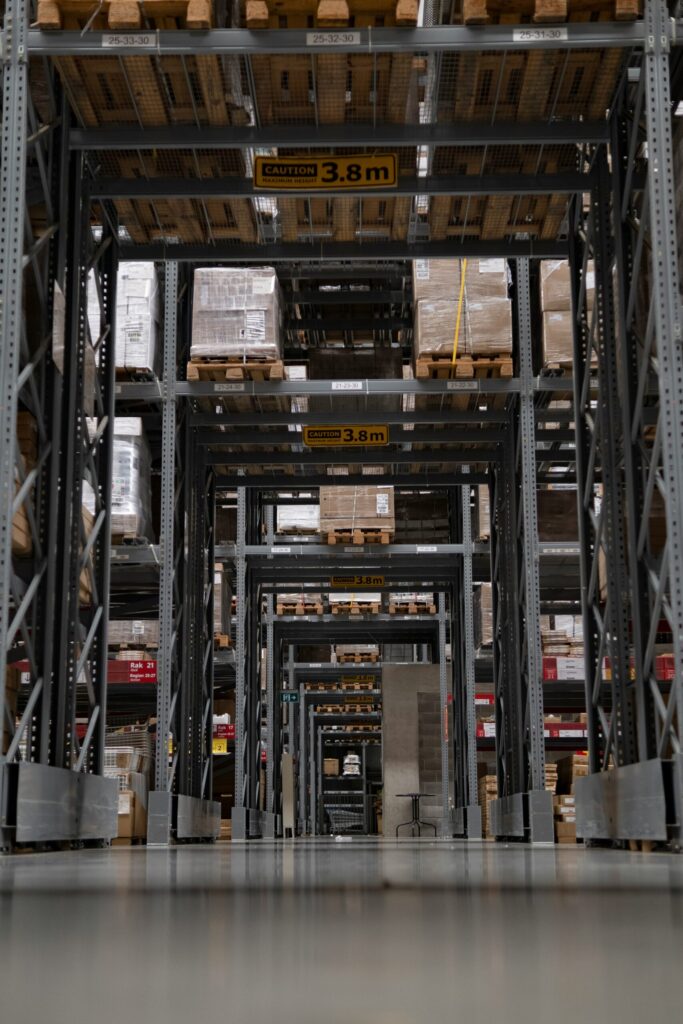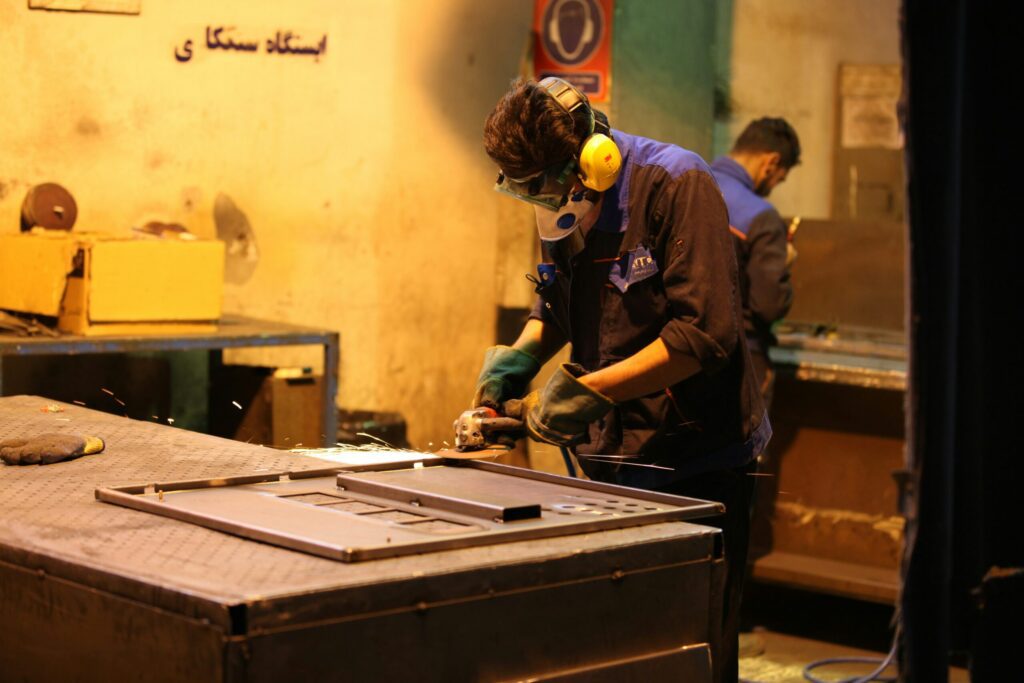 Working as a heavy equipment operator in the United States entails using a variety of machines, such as cranes, excavators, and bulldozers, to move materials, grade soil, and build infrastructure. If you have ever seen a construction site and been struck by the accuracy with which a crane swings steel beams into position or a bulldozer chisels away at a building’s foundation, you have witnessed heavy equipment operators in action. These experts have a significant impact on the construction of the US’s roads, bridges, buildings, and other infrastructure.
Working as a heavy equipment operator in the United States entails using a variety of machines, such as cranes, excavators, and bulldozers, to move materials, grade soil, and build infrastructure. If you have ever seen a construction site and been struck by the accuracy with which a crane swings steel beams into position or a bulldozer chisels away at a building’s foundation, you have witnessed heavy equipment operators in action. These experts have a significant impact on the construction of the US’s roads, bridges, buildings, and other infrastructure.
There is an increasing need for skilled heavy equipment operators who can confidently and carefully handle large machinery as the nation’s demand for new construction and infrastructure upkeep grows. Being a heavy equipment operator offers a career path that combines practical labor, decent compensation, and long-term job stability, regardless of what stage you are in.
Outlook of Heavy Equipment Operator Jobs
Heavy equipment operators are expected to see a 4% increase in employment overall between 2023 and 2033, which is roughly as fast as the average for all occupations. Infrastructure development, ongoing building projects, and the need to replace retiring employees are the main drivers of this expansion. For infrastructure projects like bridges, highways, airports, and pipelines, heavy equipment operators are needed.
How to Become a Heavy Equipment Operator
Before beginning a full-time job as a heavy equipment operator, an apprenticeship program must be taken that typically lasts three to four years. It is important to remember that apprenticeships are “earn as you learn” programs.
Top 16 Heavy Equipment Jobs with the Highest Pay in 2025
 Jobs using heavy machinery are usually found in the industrial maintenance or construction sectors. Heavy equipment operator jobs and heavy equipment mechanics are the two primary types of heavy equipment jobs. Operating massive pieces of machinery to assist in the construction or maintenance of highways, bridges, tunnels, pipelines, and other large structures is your responsibility as a heavy equipment operator.
Jobs using heavy machinery are usually found in the industrial maintenance or construction sectors. Heavy equipment operator jobs and heavy equipment mechanics are the two primary types of heavy equipment jobs. Operating massive pieces of machinery to assist in the construction or maintenance of highways, bridges, tunnels, pipelines, and other large structures is your responsibility as a heavy equipment operator.
-
Tower Crane Operator
A tower crane operator lifts and moves construction equipment and materials around a job site using heavy machinery. To operate a tower crane safely, you must have specialized training. Tower crane certification is provided by the National Commission for the Certification of Crane Operators (NCCCO), and a 10-hour training program is offered by the Occupational Safety and Health Administration (OSHA). You must use watch signalers to manage crane movement, stay under the load limitations set for your heavy machinery, and radio your workers while operating your tower crane.
-
Belly Dump Driver
A driver who runs a belly dump truck is known as a belly dump driver. The material in the trailer dumps from the bottom of this vehicle instead of the end, as is the case with an end dump truck, because it has a double bottom. What you do in this line of employment depends on the industry you work in. Belly dump drivers can find employment in industry, mining, construction, or road maintenance. Your duties can involve transporting different commodities for a trucking company’s clients or hauling materials for a particular industry.
-
Supervisor of Rigging
A rigging supervisor oversees, manages, and operates equipment like cranes. In this line of work, you will be responsible for inspecting machinery and installing cables and rigging equipment. You are primarily responsible for overseeing the riggers and other experts. When lifting, hoisting, or installing tools or supplies, you make sure the workforce adheres to the proper safety protocols. You can also be in charge of each project’s budget and timeline. You have to update project managers on your progress and activities at different times during the day.
-
Commercial Front Load
One particular kind of large vehicle utilized for rubbish removal and garbage collecting is a front loader truck. You drive this big truck as a commercial front-load driver. Typically, this line of work involves managing the city’s waste for the municipal sanitation agency. Driving along a pre-planned route, picking up rubbish left by people or businesses, and delivering it to a waste management facility or landfill are your duties. Along the way, you may also be required to inspect and maintain your truck, spot potentially dangerous products by safety guidelines, and occasionally speak with consumers.
-
Mobile Crane Operator
A specialist with the training and credentials to operate a crane is known as a mobile crane operator. Moving extremely big objects safely and effectively is the main responsibility of a mobile crane operator. Jobs in the manufacturing and construction sectors are frequently available. A fixed cab, swing cab, lattice boom, or hydraulic boom crane are just a few examples of the types of cranes that many mobile crane operators specialize in operating. In addition to communicating with the site crew and adhering to all industry occupational norms, you must operate the crane safely across potentially hazardous terrain.
-
Rig Hand
An employee on an oil rig is known as a roughneck or rig hand. The phrase “rig hand” refers to a variety of positions performed on an oil rig. In this line of work, you are typically in charge of maintaining the drilling rig and its equipment. However, the particular position will determine your precise responsibilities. The lease hand is the lowest rank in the rig hierarchy. You carry out general maintenance on the drilling rig in this capacity. The floor hand is the next step, helping to set up and break down the drilling process.
You are responsible for managing the rig’s piping, drilling equipment, and other essential supplies in this role. The rig tech advances to the next three positions: motorhand, derrickhand, and driller. They are responsible for manning the drill, keeping an eye on the drill systems, and maintaining the rig’s engines.
-
Yard Manager
The person in charge of a particular yard is known as the yard manager. This can include overseeing a recycling program, managing construction equipment, scraping automobiles, or managing any other type of yard that requires assistance. As a type of heavy equipment operator, you would have to supervise teams of workers, maintain inventories, conduct maintenance, hire new staff, and provide job training in this position. Although the details differ depending on the kind of garden, leadership is always required because this is a management role. Yard managers frequently conduct payrolls, lift 75 pounds or more, report to owners, and make sure all applicable laws are followed.
-
Grade Checker
In the construction sector, a grade checker sets grade stakes to direct equipment operators on sloping highways and embankments, usually on roads. Setting these grade stakes in this line of work involves the use of hand tools, measuring devices, and predetermined ratios. After the worksite preparation, you observe the excavation procedure to make sure the operator makes all the right marks. Following the completion of the excavation operation, you scan the worksite using GPS technology to make sure the grade is as intended. If not, you place more bets and the procedure repeats.
-
Crane riggers
Using a crane to lift and move heavy or huge objects is the responsibility of a crane rigger. These experts have the necessary certifications to operate this large equipment securely. You usually work on construction sites for tall structures, ships, bridges, and highways in this line of work. You must adhere to all safety regulations as specified in your authorized training because the magnitude of the load you are transferring with the crane can be hazardous. Additionally, operating the crane as a heavy equipment operator and ensuring that it is correctly built is part of your job responsibilities.
-
Hoist Operator
Operating hoisting machinery, such as forklifts, clamps, and elevating platforms, is your responsibility as a hoist operator. Also, you help to transport inventories and goods to their proper locations. To make sure they move materials, hoist operators frequently assist in loading and unloading vehicles. Furthermore, they handle assisting with the transportation of materials to a warehouse or job site and determining the best type of hoist for the job. You may fill fuel tanks, lubricate machinery, replenish batteries, conduct safety inspections, and operate machinery over challenging or uneven terrain.
-
Crane Operator
A professional heavy machine operator with a focus on cranes is a crane operator. Cranes are a special type of heavy machinery that move, elevate, and lower big objects like steel beams and shipping containers using pulley systems. The task of securely and effectively transporting these items to their destination falls to a crane operator. In addition, this type of heavy equipment operator logs their work, plans, and communicates with their team, and does routine machine maintenance.
-
Blade Operator
A worker who operates special construction equipment, like motor graders or finish blades, is a blade operator. In this line of work, your duties include using your machinery to finish building projects. The particulars of the project will determine your exact responsibilities. It can be necessary to finish the grade of a road’s surface or dig a section. Additionally, you have to do routine maintenance on your equipment and make any necessary small repairs. More serious repairs can be for special mechanics. To prevent expensive repairs, you should maintain your equipment. Also, safety management is a crucial component of your job as a blade operator. To reduce risk on the job site, you must adhere to all safety procedures.
-
Lumber Estimator
Lumber estimators use the project’s blueprints or other specifications to determine the quantity and kind of lumber to finish a project. After determining the important materials, you give the contractor comprehensive technical information and cost estimates. Furthermore, the project manager uses these numbers to buy the supplies. Other wood-related jobs, such as creating shipping boxes, wine or distillation barrels, or garden planters, can also use some timber estimators.
-
Operator of Construction Equipment
The term construction equipment operator can refer to a wide range of professions. Also, an individual who runs heavy machinery for the construction of buildings, roads, bridges, or other constructions is a construction equipment operator. Your responsibilities in this role change depending on the projects and equipment you deal with. At a construction site, you typically utilize heavy equipment to move and excavate. Additionally, you extract, or dig up dirt, as well as transport or hoist building materials. Along with adhering to safety regulations and helping your fellow crew members do the same, you are also in charge of cleaning and maintaining your equipment.
-
Bulldozer Operator
On a building site or other job site, a bulldozer operator works. The job primarily involves excavating, clearing, or demolishing with a bulldozer. Heavy equipment operators operating additional heavy machinery, like a crane or tractor, in support of a job or project, may also be part of your duties. For the safe operation of heavy machinery, you must be familiar with safety laws and procedures regardless of the type of project. Additionally, you must be proficient in digging and bulldozing clearance.
-
Concrete Pump Operator
A skilled worker who mostly works on construction sites is a concrete pump operator, sometimes as a concrete pumper. Driving a truck with a concrete pump, assembling tools at each building site, operating the boom to regulate concrete production, and maintaining the equipment are all part of their job responsibilities. Their duties include regular equipment maintenance and the safe functioning of the machines. Every day, you frequently travel between several job sites to pump concrete, which is important for building projects.
Typical Responsibilities for These Roles
There is a variety of powerful construction machinery, including loaders, excavators, bulldozers, and backhoes. Carrying out operations such as soil grading, excavation, and transportation. ensuring equipment maintenance and adherence to safety rules. Also, operating heavy machines at quarries, construction sites, and other locations. These may also entail helping with other construction-related duties, operating cranes, and loading items.
Requirements for Heavy Equipment Operator Jobs
 Usually, a high school degree and a current driver’s license are prerequisites. Also, it is frequently mandatory to have prior experience operating heavy machinery, and certain businesses may offer training. It’s crucial to have a basic understanding of mechanics and the capacity to comprehend and adhere to directions. Additionally, it helps to have good spatial reasoning and hand-eye coordination. Having a commercial driver’s license (CDL) may be necessary for some jobs.
Usually, a high school degree and a current driver’s license are prerequisites. Also, it is frequently mandatory to have prior experience operating heavy machinery, and certain businesses may offer training. It’s crucial to have a basic understanding of mechanics and the capacity to comprehend and adhere to directions. Additionally, it helps to have good spatial reasoning and hand-eye coordination. Having a commercial driver’s license (CDL) may be necessary for some jobs.
What is the Average Salary Range?
In the United States, a heavy equipment operator makes, on average, $29.43 per hour as of June 27, 2025. In the United States, the majority of heavy equipment mechanics presently make between $25.00 and $32.93. There may be numerous prospects for development and higher income depending on skill level, region, and years of experience, as the average salary range for a heavy equipment mechanic varies significantly (by as much as 7).
Conclusion
Heavy equipment operator jobs in the USA provide a stable and fulfilling career path for people looking for practical, professional employment in a range of industries. These industries range from public utilities and transportation to mining and construction. Because of the country’s continuous infrastructure investment, there is a high demand for skilled operators. This offers prospects for career growth and work stability. Furthermore, these positions usually offer competitive pay, perks, and the fulfillment of helping to create the physical landscape of the nation. Also, a job as a heavy equipment operator can be rewarding and financially stable. This is for people who like working outside, operating large machinery, and taking on tasks that call for accuracy and safety.





